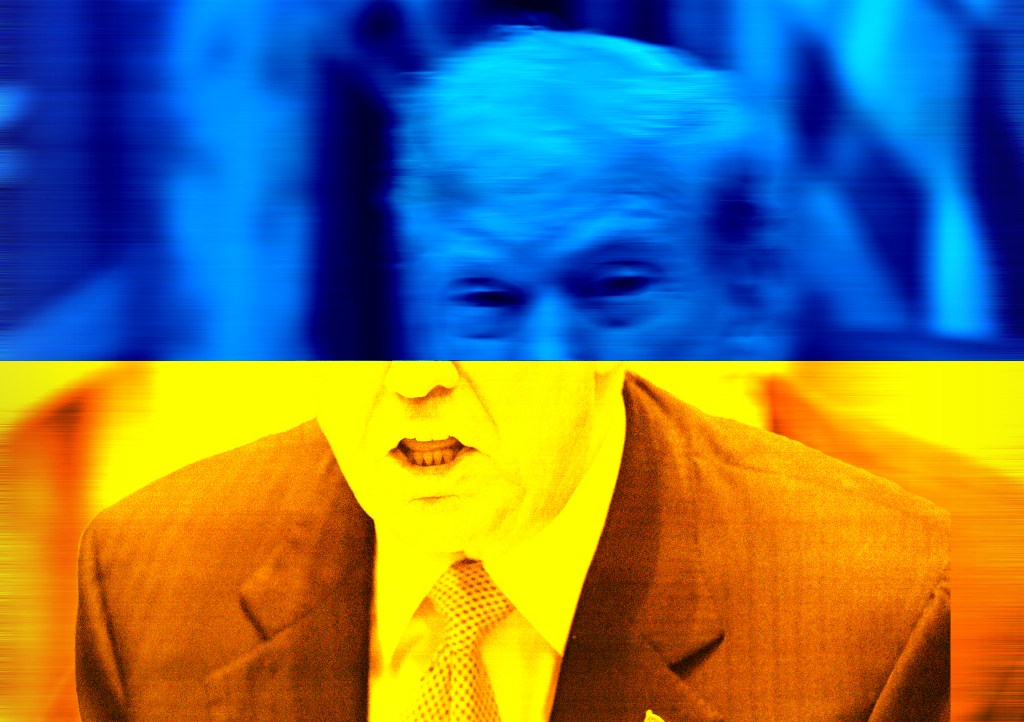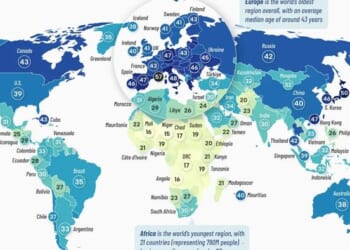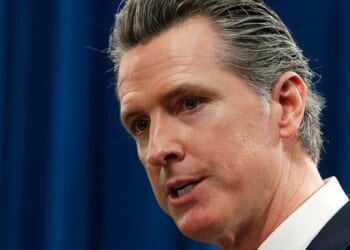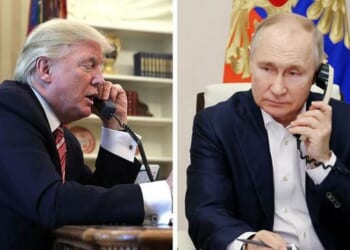
The president reportedly supports Witkoff’s plan, but it has the feel of a trial balloon—a lead one, given how it’s being received by Ukraine’s friends here and abroad. Even Secretary of State Marco Rubio felt obliged to say that it’s a work in progress, noting in a statement that “we are and will continue to develop a list of potential ideas for ending this war based on input from both sides of this conflict.”
At the risk of trying to analyze a gust of wind, why now? What happened to rekindle the Trump-Putin situationship?
I think Zelensky, unexpectedly, has become a target of opportunity for the White House.
Squeezing Zelensky.
The new peace proposal is obviously inspired by Trump’s 20-point plan for Gaza that the United Nations Security Council formally endorsed earlier this week. Success breeds success: Having imposed its vision of a settlement on Israel and Hamas, the administration has been inspired to try to do the same to Ukraine and Russia.
But the two wars aren’t analogous. The formula for peace in Gaza was to “defeat Israel’s enemies first and make peace with them second,” Noah Rothman wrote in National Review. “If the reporting around this new peace plan for Europe reflects the thinking in the White House, they’ve gotten the necessary sequence of events backwards.”
That’s true, but the difference is partly circumstantial. Israel could and did win on the battlefield. Ukraine cannot (despite what Trump might tell you when the winds are blowing hawkish), unless by “win” we mean grinding on indefinitely in a war of attrition until Russia sues for peace on terms somewhat more favorable to Kyiv than the Witkoff-Dmitriev plan. “Win first, make peace second” is a nonstarter unless the president is prepared to support several more years of war, which he obviously isn’t.
The bigger difference, though, is that Trump had a rooting interest in one war and doesn’t in the other. His commitment to peace between Israel and Hamas was not so great that he would have switched sides opportunistically to secure it. There was no scenario in which he would have pressured Prime Minister Benjamin Netanyahu to accept terms highly favorable to Hamas, even if he believed doing so might be the fastest path to a ceasefire. For whatever reason, be it the political sympathies of the Republican base or his own hatred of jihadist barbarians, Trump is a true ally of Israel.
He isn’t a true ally of Ukraine. He’s neutral between the combatants in Russia’s war—at best—and eager for peace on any terms, favorable to Kyiv or not. His second term began with him berating Zelensky on camera in the Oval Office to make a deal ASAP because Ukraine doesn’t have “the cards” to win; eight months later, he was still hammering the same message in meetings with the Ukrainian leader. Insofar as Trump sometimes sounds hostile to Russia, it’s not because Putin’s brutality offends him the way Hamas’ does. It’s because the Kremlin keeps thwarting his attempts to score a legacy-making diplomatic breakthrough.
“Win first, make peace second” doesn’t work when you don’t care who wins. If anything, it’s an argument for the president to ally with Russia. If peace can’t happen until one side or the other prevails decisively, the fastest path to a settlement for a White House that’s indifferent to the outcome is to abandon Ukraine and leave the country at Putin’s mercy.
The dire political trouble in which Zelensky suddenly finds himself might be tempting Trump to do just that.
Ukraine’s president is neck-deep in scandal after a former business partner was accused of masterminding a scheme to steal $100 million from the state nuclear power company. Bear in mind that Ukrainians are already struggling with power outages caused by Russian bombing and are freshly suspicious of crooked leadership after Zelensky tried to neuter the government’s anti-corruption watchdogs this summer before reversing himself under public pressure. Presidential cronies are profiting off of the nation’s misery and the president is complicit, or so it might seem.
Some critics are now calling on Zelensky to fire his entire leadership team to restore public confidence in the government. Certain members of parliament from his party might even declare their independence to distance themselves from him, potentially denying him a legislative majority.
The White House must be privately ecstatic. After the Oval Office showdown in February, Trump advisers and other top Republicans urged Zelensky to resign and make way for a successor more willing to cooperate with the president’s peace-at-all-costs agenda. Ukraine’s leader is a symbol of determined resistance to Russian hegemony; removing that symbol would be useful to a U.S. administration that doesn’t care who rules Ukraine and would like it if Ukrainians didn’t much care either.
The calls for resignation calmed down after Zelensky and Trump rebuilt their relationship, but the scandal roiling Ukraine has now presented the White House with the next best thing: a chance to squeeze Zelensky to make a deal at a moment when he’s never been weaker politically. He’s a diplomatic target of opportunity: Either he can accept the lopsided Witkoff-Dmitriev plan, bringing the war to a rapid close on Russia’s terms, or he can reject it and risk having the U.S. refuse to sell Europe any more weapons for Kyiv’s use, which will supposedly make him that much more unpopular at home and possibly trigger his downfall.
The president has Zelensky over a barrel, in other words, just like he thought he had Putin over a barrel in October when Ukrainian attacks on oil infrastructure caused a gasoline shortage in Russia. Trump will squeeze whichever side seems more susceptible to being pressured into painful concessions, as he knows that the sooner the war ends, the sooner he can pivot away from the “foreign policy crap” that even his own voters don’t care about and toward the affordability crisis that’s begun to eat him and his party alive.
Seems like a plan. What could go wrong?
What could go wrong.
Start with the basic supposition here, that the newly weakened Zelensky is more likely to make a bad deal that sells out his country. Is that right? If the only thing now propping up his political support is his indomitability against Russian aggression, isn’t he less likely to fold than he was before?
A Western official who spoke to the Wall Street Journal thinks so, telling the paper that “Zelensky has even less room to maneuver as a result of a corruption probe and that backing away from his country’s fundamental security positions would only further erode his standing at home.” It’s true that Ukrainians in recent months have been more open to a negotiated settlement than they’ve ever been but “we need peace” and “we need peace at all costs” are different things. Remember that after Zelensky resisted Trump’s pressure tactics to negotiate with Russia during February’s televised Oval Office meeting, his approval at home rose to 68 percent.
Frankly, the terms of the Witkoff-Dmitriev proposal will make it easy for him to say no. Previously Trump had talked of a settlement that would freeze the front lines and recognize the sovereignty of each country over the territory it currently occupies. Not anymore: Under the new peace plan, Ukrainian troops would have to withdraw from the small part of the Donbas they control and see it become a demilitarized zone. Ukraine has defended that territory doggedly for years because it’s economically and strategically important, a potential springboard for a Russian push westward. Now it’ll be ripe for the taking the next time Putin invades.
The comprehensive demilitarization of Ukraine itself under the deal makes the terms not worth taking seriously. A much smaller army, no more U.S. weapons, no long-range missiles, and no foreign peacekeepers: The Kremlin wouldn’t care about that if its future intentions were peaceful or if it believed America would honor whatever commitment it plans to guarantee Ukraine’s security against a new Russian invasion. But its intentions aren’t peaceful and Russia doesn’t believe the U.S. will ride to the rescue, so its demands betray that. How can Zelensky agree to them?
He can’t. And while Trump might not realize it, Ukraine’s leader will probably be doing him a favor politically by saying no.
Granted, it’s too much to expect Republican voters to maintain their support for Ukraine if Zelensky rejects the White House peace plan. That support surged after the president began grumbling about Putin being an obstacle to peace; once he starts grumbling about Kyiv being the real obstacle, the numbers will move accordingly. Trump won’t be punished by his supporters for this sellout.
But his creeping lame-duckery makes this an interesting test for Republicans in Congress. The House and Senate GOP tilt hawkish, especially with respect to Russia, and are destined to detest the terms of the deal that Witkoff brokered. (Retiring Rep. Don Bacon has already compared it to “1938 Munich.”) When staunch Trump crony Sen. Lindsey Graham was asked about it yesterday, he claimed not to know the details and said tersely, “I’m glad that we’re coming up with a plan.” Reportedly movement is stirring in the House to move a bill sanctioning Russia—possibly via a discharge petition, in case Speaker Mike Johnson tries to smother it before it reaches the floor.
No one ever went broke betting on Republicans to cower before Trump, particularly establishment dinosaurs like Graham, whose credibility with the right-wing base depends entirely on the president’s favor. But we did see a rare, minor yet meaningful rebellion against the White House succeed in the House last week, and Trump’s declining political capital might invite other surprising tests of strength. If he tries to ram the Witkoff-Dmitriev package down Zelensky’s throat, he may get more static from his congressional allies—and more division in his party—than he expects.
As for the idea that settling the Ukraine war expeditiously will free him to focus on domestic issues, well, it all depends, no?
If he “settles” it by pulling the rug out from under Zelensky after Ukraine rejects the Witkoff deal, things could get ugly. “If [Trump’s] administration ends all arms sales and intelligence cooperation with Kyiv, it will be held responsible for the slow and painful Ukrainian defeat that will surely follow,” Thomas Wright warned the president in The Atlantic, recalling how Afghanistan haunted Joe Biden. “Moscow will probably then press its advantage by stamping out every ember of sovereignty inside Ukraine, on the excuse that this is all a part of implementing the peace plan’s provisions. Russia may also act against European states that continue to help Ukraine. China and North Korea will be emboldened by their ally’s victory. And the Trump administration will find that its problem has metastasized.”
A catastrophe in Ukraine that inspires various new crises instigated by other American enemies: That’d be a funny outcome to a strategy designed to let the White House pivot to domestic concerns.
If, on the other hand, Trump settles the war by bullying Zelensky into accepting a bad deal, that’s also likely to lead to bad politics. For the sake of maintaining a fragile peace, the White House will feel obliged to try to keep Putin happy by defending every Russian attempt to intimidate Ukraine short of war. Europe, meanwhile, will firmly conclude what it already suspects, that America is an unreliable ally that can no longer be trusted to defend the continent’s interests and therefore it should pursue better relations with China.
Ukraine itself will doubtless try to ready its defenses surreptitiously for a future Russian invasion, possibly involving a nuclear weapons program, at which point Moscow will accuse it of violating the peace deal. With a new war looming, Trump will be forced to take a position on whom to blame. This time he might side overtly with Putin: If the Witkoff-Dmitriev deal requires Ukraine to remain eternally defenseless against Russia and Ukraine refuses to remain defenseless, the U.S. is duty-bound to punish the party that’s breached the agreement, no?
If Trump wants out of Ukraine, there’s a way to do it that will boost the odds of a fair and durable peace. Simply continue to sell weapons to Europe for the sake of arming Kyiv and give the Ukrainians every opportunity to destroy Russia’s will to fight. “An armed society is a polite society,” Robert Heinlein famously said, and the right’s many gun-rights advocates will agree. The same goes for geopolitics: An armed “sphere of influence” is a polite sphere of influence. Russia will learn politeness when it’s required to learn it and not a moment sooner. So make it.

















